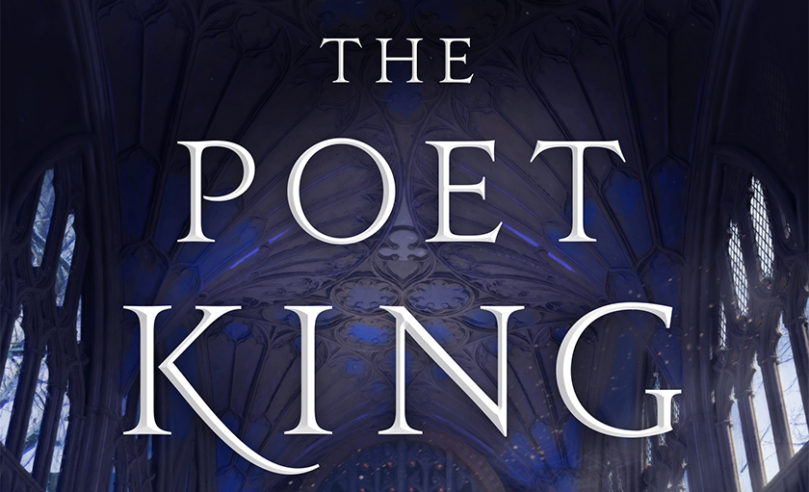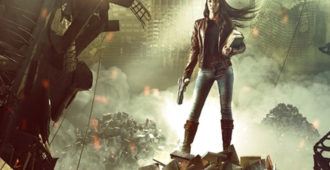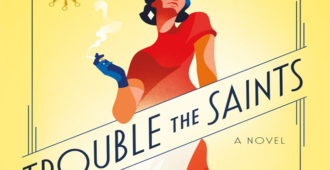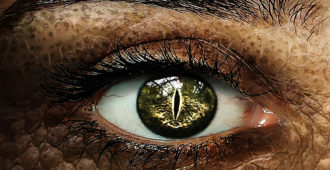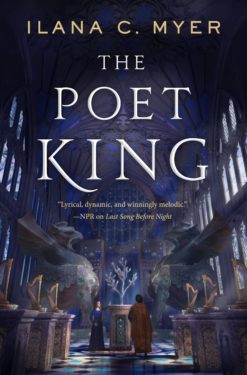
What makes a villain an interesting character? A complex nemesis? An antagonist worthy of a great epic? Ilana C. Myer, author of The Harp and Ring Sequence, explores the nuances that go into writing a great Big Bad in the below feature. Let us know your favorite literary villains in the comments!
Prophecies unfold, legends turn real, and a war of mythical proportions endangers the realm in Ilana C. Myer’s epic fantasy The Poet King, the follow-up to her critically-acclaimed Fire Dance, continuing The Harp and Ring Sequence.
By Ilana C. Myer
Years ago I participated in a panel about villains in science fiction and fantasy, and it got me thinking. I have some pretty strong ideas about villains in fiction, which panel moderator Charlie Jane Anders’ incisive questions forced me to re-examine. And having these ideas clarified in one’s mind is invaluable for a writer’s toolbox.
I thought about how dissatisfied I often am with commentary on Tolkien’s Lord of the Rings. One of the most common criticisms of Tolkien is that his characterization is “Manichean” (the critics’ word, not mine)—the good guys are very good, the bad guys very bad, and there’s no nuance. I’m done wondering if we read the same book. I’ll just lay out what I think, in the context of what it means to create an effective villain.
It’s true Sauron is not a multi-dimensional villain (despite Elrond’s assertion that he was once good, that “nothing is evil in the beginning”). If you want a complex villain in Tolkien you have to look to Gollum, Saruman, or even Denethor. A villain like Sauron is more of a dark force than a character. He has a different narrative purpose—to galvanize the protagonists, though not just to action. Sauron forces the heroes of Lord of the Rings onto the battleground of the psyche.
Through the Ring—an extension of Sauron—the protagonists contend with their own temptations, weaknesses, and most denied impulses. We see this most clearly in Gollum, who is corrupted by the Ring and presented as a mirror image of Frodo—the person Frodo is in danger of becoming. But we see it with other characters, too, such as Galadriel, whose secret desire for power is laid bare by the Ring. Far from consisting of bland, benign, cloyingly nice good guys, Lord of the Rings depicts characters struggling with what is most alluringly dark within themselves. Each character’s internal battle is unique, depending on the temptation that lies nearest his or her heart.
In my view, a good epic fantasy will usually have more than one kind of villain. In George R. R. Martin’s A Song of Ice and Fire we have outright monsters like Gregor Clegane and Joffrey Baratheon, but also Jaime Lannister whom you might actually want to have a beer with. And then there are the White Walkers, unambiguously evil, the threat everyone will be forced to stand against. The complexity introduced by a variety of antagonists enriches the story. Along the way they hold a dark mirror to the protagonists, revealing who they might become as a consequence of even one misstep—a wrong turn in the road.
My series about poets and enchantment is layered around several antagonists. One is a Court Poet who becomes twisted by dark magic. Another is the Poet King, a natural leader, whose charisma and skill bolster his claims to the throne. He is a figure with many parallels in history, such as, for example, leaders who believe their revolutions justify the sacrifice of innocents: eggs broken to make the omelet.
Such a person may very well have admirable qualities. Certainly they would have the power to mesmerize, to dazzle—but what is underneath? I probed for the humanity in such a character; someone who would later express the fear, “I felt like I was losing myself. Like the enchantments in me had overcome the man.”
The humanizing of an antagonist hinges on what they want—what we desire is where we are most vulnerable. A sympathetic antagonist challenges the reader, makes the reader conflicted about the outcome of the story. I’m of the mind that a conflicted reader is generally a good thing. So perhaps the compassionate author, who secretly loves all the characters, even the bad ones, is in truth the cruelest villain of all.
Order Your Copy:

